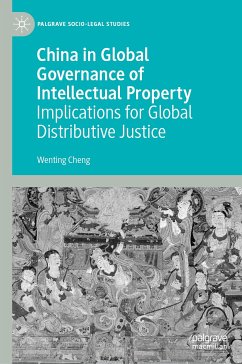This book identifies two groups of strategies that China has used in its global IP engagement: forum and agenda-related strategies and principle-related strategies. The first group concerns questions of where and how China has advanced its IP agenda, including multi-forum engagement, dissembling, and more cohesive responsive engagement. The second group consists of strategies to achieve a certain principle or manage contesting principles, including modelling and balancing. It shows that China's deployment of engagement strategies makes its IP system similar to those of the EU and the US. Its balancing strategy has led to constructed inconsistency of its IP positions across forums. This book argues that China still has some way to go to influence global IP agenda-setting in a way matching its status as the second largest economy.
Wenting Cheng is Grand Challenge Research Fellow at the College of Law, the Australian National University (ANU), Canberra, Australia.
Dieser Download kann aus rechtlichen Gründen nur mit Rechnungsadresse in A, B, BG, CY, CZ, D, DK, EW, E, FIN, F, GR, HR, H, IRL, I, LT, L, LR, M, NL, PL, P, R, S, SLO, SK ausgeliefert werden.
Hinweis: Dieser Artikel kann nur an eine deutsche Lieferadresse ausgeliefert werden.









